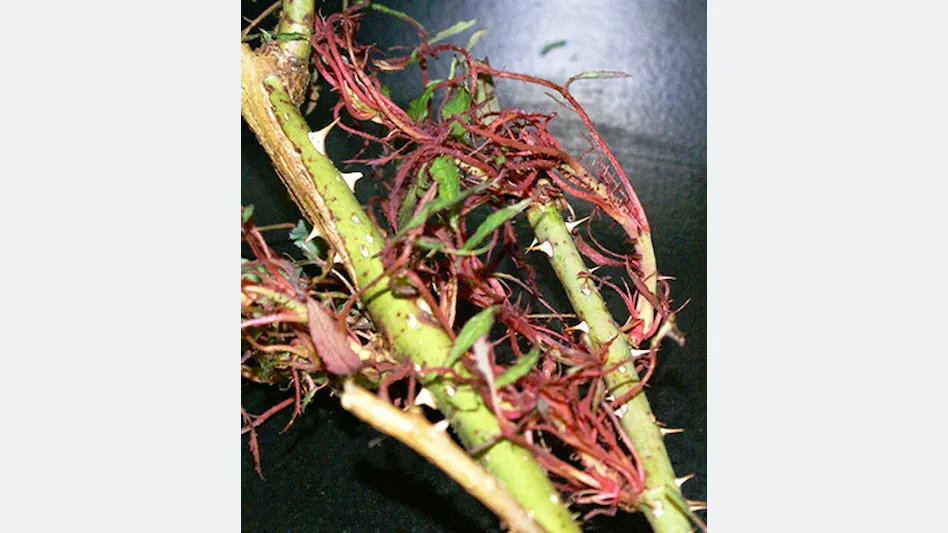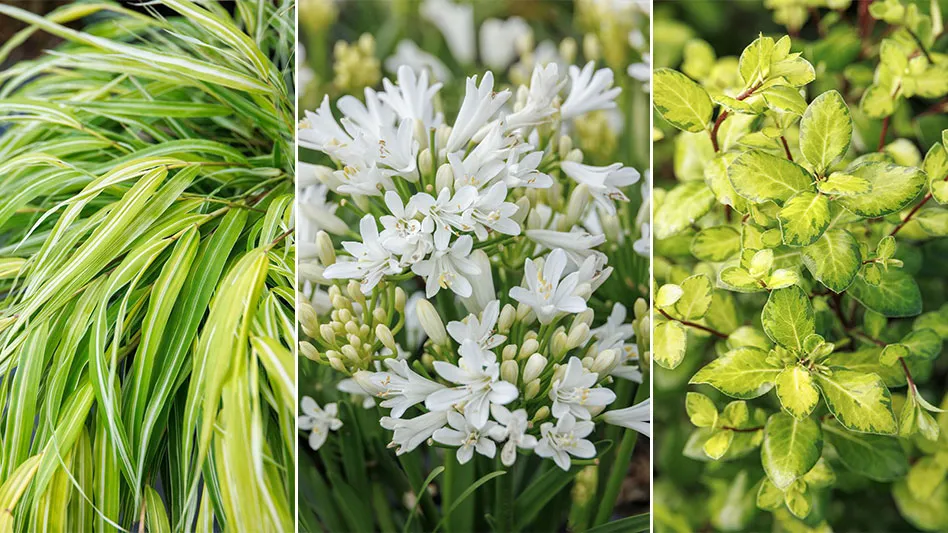
Nurseries in three Florida counties -- Gadsden, Alachua and Levy -- have been confirmed with rose rosette disease (RRD).
RRD causes a variety of odd-looking symptoms including peculiar red growth, excessive thorniness, elongated shoots, deformed blooms, pliable canes and often leads to the eventual death of the plant. The disease was first recognized in the 1940s but was never fully characterized. Based on some similarities to other better defined pathogens it's believed to be caused by a virus or plant specialized bacterium called a phytoplasma and spread by an eriophyid mite (Phyllocoptes fructiphylus). The disease is likely endemic to the continental U.S. and causes no visible symptoms in some native species of Rosa, such as R. setigera and R. palustris. Rosa multiflora is particularly susceptible to RRD.
In the Florida cases, the disease was found in production roses, as well as on a planted rose in a display garden, according to DPI officials. Inspectors have yet to find the mite vector anywhere in the state. That has led DPI officials to believe the disease spread to Florida on propagation material shipped in from other states. All of the infected plants in Florida belonged to the Knock Out series.
For more information on RRD, visit this page.
Latest from Nursery Management
- CIOPORA appoints Micaela Filippo as vice secretary-general
- Registration opens for Darwin Perennials Day
- April 2024 issue recap
- U.S. Department of Labor finalizes farmworker protection rule
- Azo Root is now available from Harrell’s
- Smith Gardens assumes operations of Skagit Horticulture
- Garden Media Group announces the fifth annual Women in Horticulture Week
- Eason Horticultural Resources announces the addition of Phil Perry





